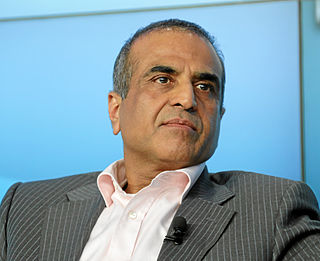A Quote by Virginia Postrel
Traditional PCs face competition from specialty products like Palm Pilots and from the servers that provide the nodes in computer networks. Microsoft's Windows CE hasn't done too well in the specialty-device market, and its Windows NT faces strong competition for server customers.
Related Quotes
If you truly don't have competition, then zoom out until you can define some. Competition can be as simple as the reliance on the status quo, Microsoft (since at some point Microsoft will compete with everyone for everything), or researchers in universities. Pick something, because saying you have no competition at all is a nonstarter.
Microsoft made a big deal about Windows NT getting a C2 security rating. They were much less forthcoming with the fact that this rating only applied if the computer was not attached to a network and had no network card, and had its floppy drive epoxied shut, and was running on a Compaq 386. Solaris's C2 rating was just as silly.



































